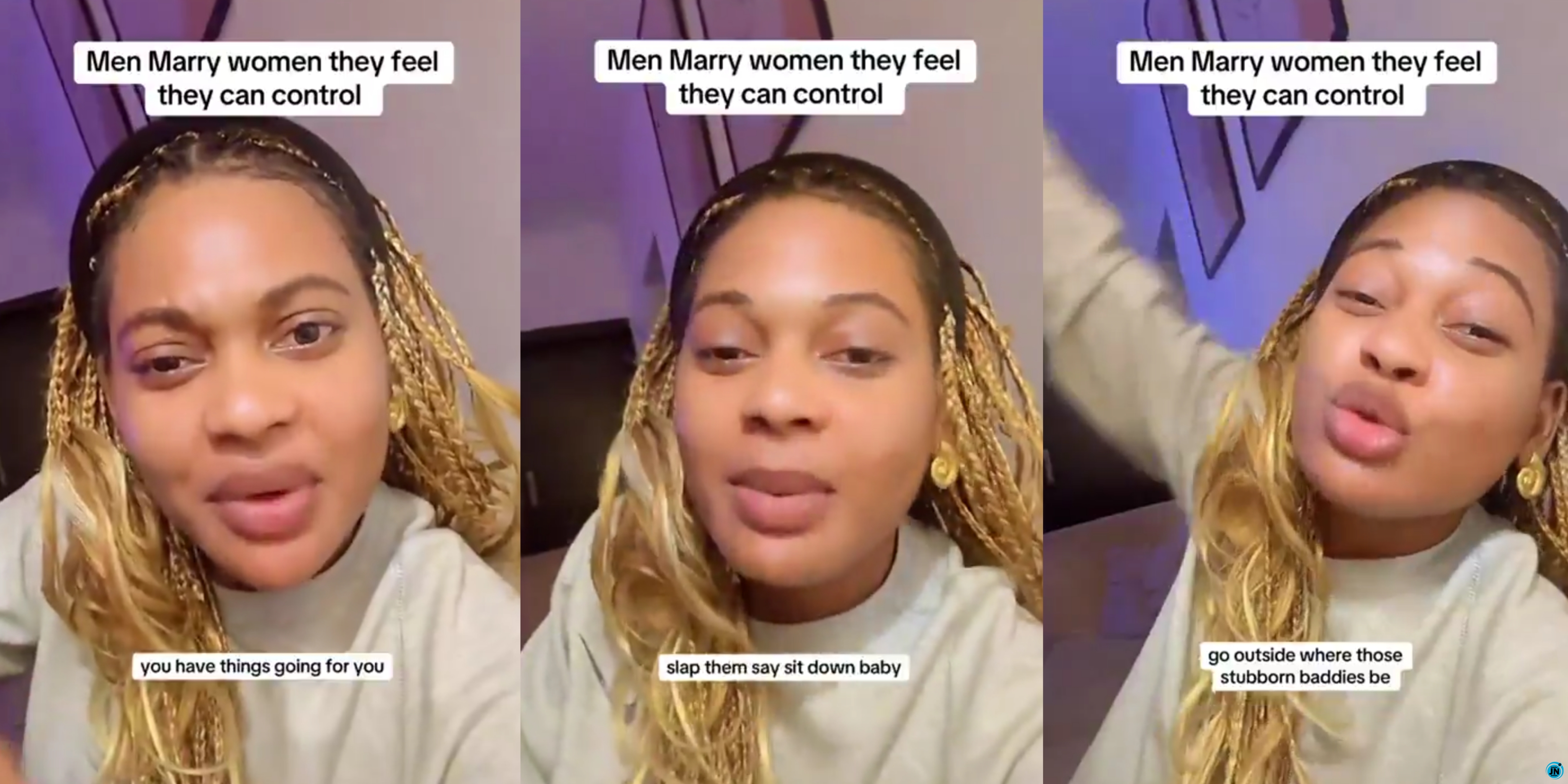
A young Nigerian woman has stirred massive conversation online after boldly sharing her opinions about relationships, marriage, and the role of women in society. Her statements, which were originally made in a social media post, quickly spread across different platforms, sparking heated debates among men and women of different backgrounds.
In her post, the lady argued that many men still prefer submissive partners over educated or knowledgeable ones. According to her, women who are outspoken, independent, and intelligent often face difficulties in marriage because some men see them as threats to control and authority.
She suggested that a large number of men choose “compliant” women, those who obey without questioning and who dedicate themselves strictly to domestic roles. She added that such women are often chosen because they are easy to “manage,” while educated or independent-minded women are overlooked or criticized for being “too strong.”
Her post gained quick attention, going viral within hours, as social media users began to debate whether her claims were accurate reflections of Nigerian society or exaggerated assumptions. The controversy highlighted the clash between modern views on women’s empowerment and traditional beliefs about gender roles in marriage.
The post and its claims
In her detailed remarks, the woman claimed that men often see educated and knowledgeable women as rivals instead of partners. She explained that while these women bring intellect, ambition, and confidence into relationships, many men view such traits as obstacles rather than strengths.
She compared men’s choice of women to “using a remote,” saying that submissive women are like simple devices that can be controlled with ease, while independent women are harder to handle. According to her, this is why some men marry women who will “listen to instructions” and carry out household duties, only to look for excitement outside the marriage.
She went further to emphasize that this mindset is not just about marriage but also about society’s expectation of women to always “stay in line.” Her words challenged the traditional notion that women must sacrifice their voices, knowledge, and independence in order to be considered marriage material.
Her post immediately drew thousands of comments, both supportive and critical. While some agreed that her perspective was valid and a reflection of existing cultural realities, others dismissed her claims as bitter generalizations that do not represent the majority of Nigerian marriages.
Social media reactions
iam_Bonex wrote: “If that’s what you believe, good for you. Not all men are the same, and some of us love strong and educated women.”
ugo_shib countered: “The problem is that you think you’ve got sense because you went to school. Now you want to compete with men as equals. Keep crying, because it will not work in marriage.”
aondosoo j said: “Aunty, abeg go and marry a man you can control. The women we marry are not complaining; they are enjoying their homes. Stop disturbing us with talk, go and find husband.”
olisaobioha added: “She’s just coping. In my house, I never saw my father controlling my mother. I don’t control my wife either. Some women just use this excuse because of bad attitude. Own up to your behaviour.”
Beyond the backlash, several commenters also encouraged the young woman, praising her for starting a much-needed conversation about gender expectations in Nigerian society. They argued that the real problem lies in cultural conditioning, which often teaches men to dominate and women to submit, instead of promoting equality and partnership.
Watch the video below…
https://x.com/Teeniiola/status ... ?s=19
The conversation continues to trend across platforms, reflecting the fact that gender roles, power dynamics, and expectations in marriage remain some of the most hotly debated issues in Nigeria today. Whether people agree or disagree with her, one thing is clear—the young woman’s post has struck a nerve and forced many to reflect on their personal views about love, marriage, and respect between men and women.